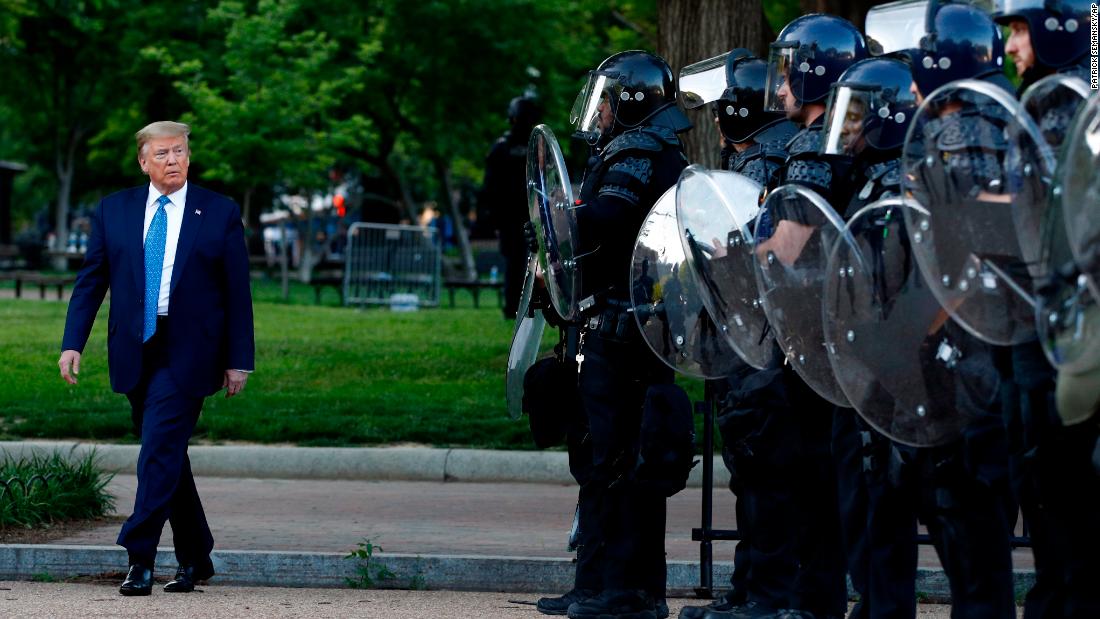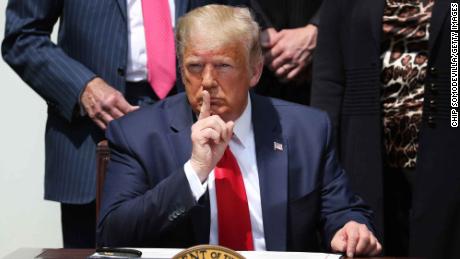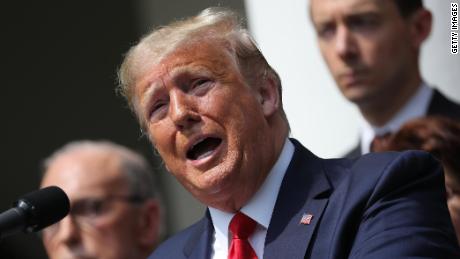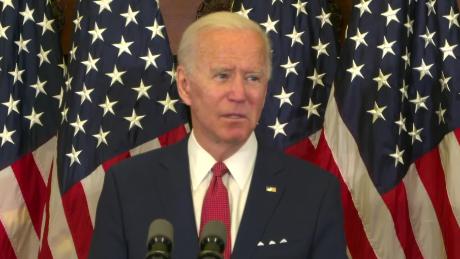After the President spent two weeks ripping at racial wounds and painting a picture of a nation under siege, it may already be too late
In reality, increasingly violence-free nationwide protests with peaceful crowds braving the implications of a pandemic are providing exactly the opposite impression Trump is trying to portray with his dystopian rhetoric.
But Trump’s team is beginning to signal a shift that might see the President tone down the rhetoric in a bid to win back independents and moderate suburban Republicans that he needs to win in November.
Americans now consider race relations as important a campaign issue as the economy and health care, according to the survey.
But any effort by Trump to address racial issues and police brutality in the wake of the death of Floyd with a police officer’s knee on his neck is likely to face a huge credibility test given his own recent conduct, a long history of using racial rhetoric to advance his political career — and his habit of undermining scripted speeches with his own inflammatory asides and tweets.
Over the weekend, the President retweeted a post critical of Floyd’s character. And Trump’s campaign team sent out a text reading: “Liberal THUGS are destroying our streets.”
“We have a Constitution. And we have to follow that Constitution. And the President has drifted away from it,” Powell said.
Protests, despite Trump’s rhetoric, are mostly peaceful
Days of protests appear to have evolved into peaceful affairs that seem little influenced by Trump’s demands for states to deploy active duty troops. Instead, the protests have taken on the trappings of a mass and diverse political movement that is now sweeping the globe.
“I want LAW & ORDER!” Trump wrote on Sunday in a tweet that was characteristic of his attempts to construct an alternative reality to boost his political goals.
Most protests, apart from some in New York City, have been peaceful for days. Curfews in cities including New York, Buffalo and Philadelphia are being lifted. DC hasn’t had a curfew since Wednesday.
Trump’s apparent bid for a reset comes as Biden seeks to project the empathy and leadership that the President has failed to summon in the last few weeks in a way that could shape their suddenly transformed duel in November.
The former vice president will make his most expansive move yet out of lockdown when he travels to Houston Monday. Biden will offer solace and likely share the lessons of his own life rocked by personal tragedy. But he will also be making an unmistakable political stand as he seeks to harness the power of protest to energize his campaign and to showcase the moral, calming leadership Trump has failed to offer.
Barr misleads on Washington protests
As Trump considers a rhetorical shift, his closest aides are trying to rewrite the history of the most jarring events of last week.
“They were not peaceful protesters. And that’s one of the big lies that the media is — seems to be perpetuating at this point,” Barr claimed Sunday on CBS’ “Face the Nation.”
“The Park Police was facing what they considered to be a very rowdy and non-compliant crowd. And there were projectiles being hurled at the police.” CNN reporters in the area at the time saw no evidence to support such accusations.
The building showdown over race and policing between Biden and Trump comes at a signature moment in 21st century history in America. Large, diverse crowds chanting “Black Lives Matter” have given some veterans of long civil rights struggles optimism that the country may be reaching a tipping point.
“This moment is incredibly inspiring to see people all across the country saying enough is enough,” Democratic Rep. Karen Bass of California said on CNN’s “State of the Union.”
“In many cities, you look at the protesters and there are very few African Americans, so the solidarity with what is happening in our community … is very inspiring.”
Democrats in Congress are meanwhile gathering behind a policing reform bill that they will lay out on Monday. The measure includes improved police training, greater accountability for police in the courts, bans on choke holds and carotid holds, and limits on the the use of military-grade equipment by state and local governments.
Republicans haven’t signaled any support for the legislation and may be reluctant to support any national effort to set local policing policy.
But in not heeding the protesters’ cries for change, the President — and some of his ever-loyal Republicans in Congress — may be missing a chance to catch the national mood.
![]()








